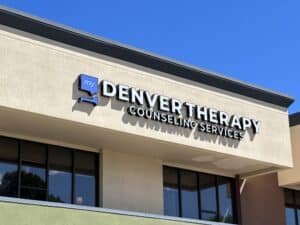Depression is a serious but treatable mental health condition that affects millions of Americans each year. According to a recent study by Columbia University’s Mailman School of Public Health, nearly one in ten Americans reported having depression in 2020. This number is especially high among adolescents and young adults.
While depression can strike anyone at any time, there are certain risk factors that can increase your chances of developing the condition. These risk factors include a family history of depression, major life changes, and chronic health conditions.
The good news is that depression is a treatable condition. There are a number of effective treatments available, including therapy and medication. If you are struggling with depression, please reach out to a mental health professional for help.
Here at My Denver Therapy, we understand that depression can be a debilitating condition. Our team of experienced therapists is here to provide you with the support and guidance you need to overcome depression and live a happier, healthier life.

Causes of Depression
While the exact cause of depression is unknown, researchers believe it is a complex interplay of biological, psychological, and social factors. Some of the risk factors for depression include:
- Genetics: Having a family history of depression increases your risk of developing the condition.
- Brain chemistry: Imbalances in brain chemicals, such as serotonin and norepinephrine, may play a role in depression.
- Hormones: Changes in hormone levels, such as those that occur during pregnancy, postpartum, and menopause, can contribute to depression.
- A history of trauma or abuse: People who have experienced trauma or abuse are more likely to develop depression.
- Chronic health conditions: Chronic health conditions, such as pain, heart disease, and diabetes, can increase your risk of depression.
- Substance use disorders: People with substance use disorders are more likely to also experience depression.
Treatment for Depression
There are a number of effective treatments available for depression. The most effective treatment for you will depend on the severity of your symptoms and your individual needs. Some common treatment options include:
- Antidepressant medication: Antidepressants can help to improve mood and relieve symptoms of depression.
- Therapy: Therapy can help you to understand your depression and develop coping mechanisms for managing your symptoms. There are many different types of therapy available, including cognitive behavioral therapy (CBT), interpersonal therapy (IPT), and psychodynamic therapy.
- Lifestyle changes: Making healthy lifestyle changes, such as eating a balanced diet, exercising regularly, and getting enough sleep, can improve your mood and overall well-being.
- Support groups: Support groups can provide you with a sense of connection and understanding from others who are also struggling with depression.
Additional Tips for Coping with Depression
In addition to the treatments listed above, there are a number of things you can do to cope with depression on your own. These include:
- Learning about depression: The more you know about depression, the better equipped you will be to manage your symptoms.
- Setting realistic goals: Don’t try to do too much too soon. Set small, achievable goals for yourself and celebrate your accomplishments.
- Practicing relaxation techniques: Relaxation techniques, such as yoga and meditation, can help to reduce stress and improve your mood.
- Spending time with loved ones: Social connection is important for mental health. Make time for the people who care about you.
- Helping others: Helping others can be a great way to improve your mood and sense of self-worth.
If you are struggling with depression, please don’t hesitate to reach out for help. You are not alone—depression of one of the most common reasons why people go to therapy. At My Denver Therapy, we have a team of experienced therapists in the Denver Metro area who can provide you with the support and guidance you need to overcome depression and live a happier, healthier life.







